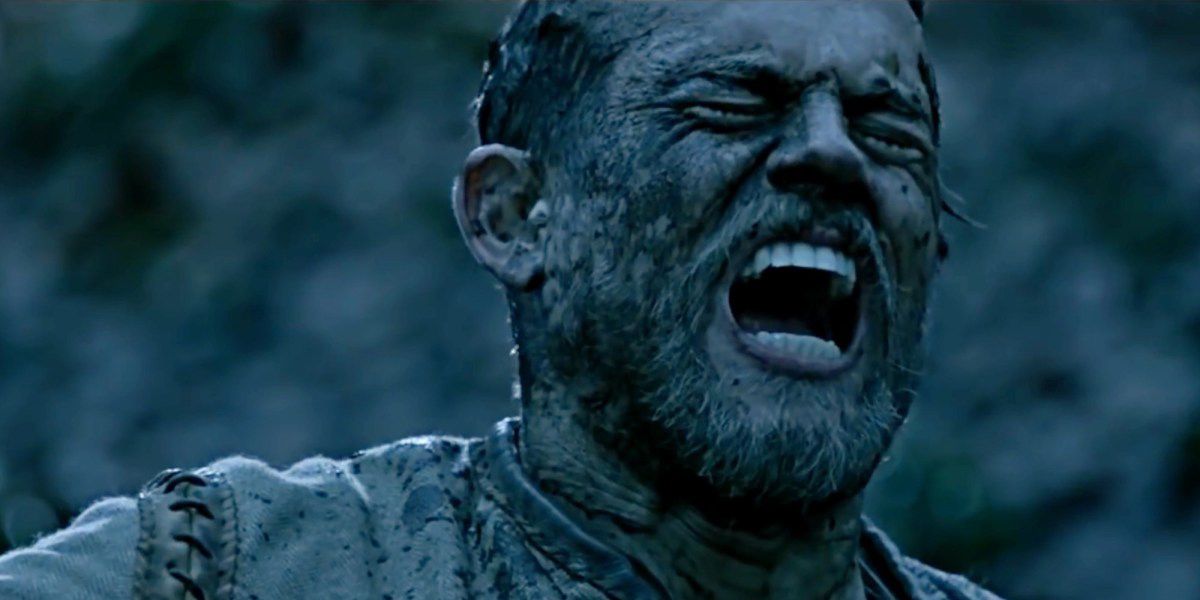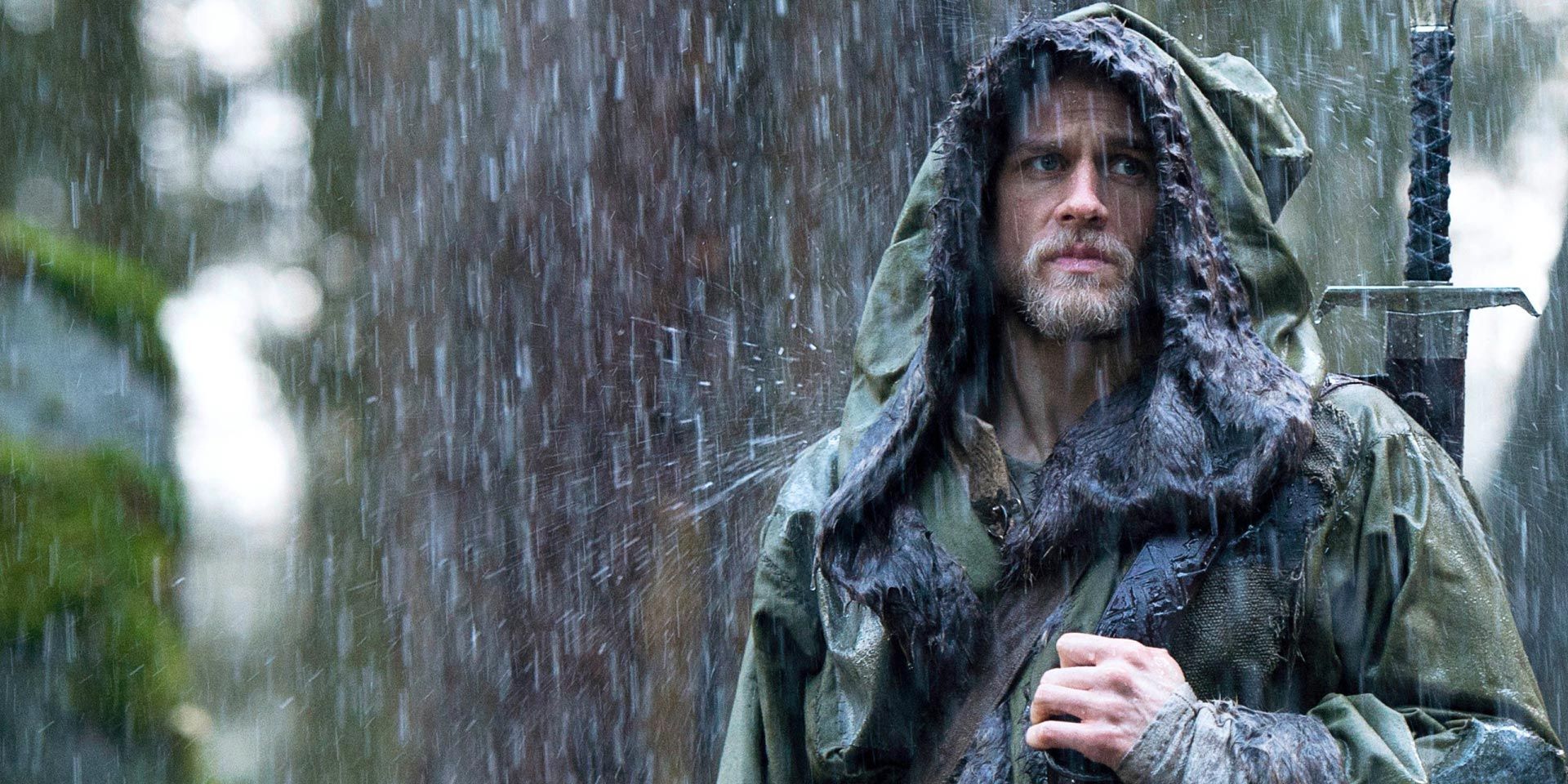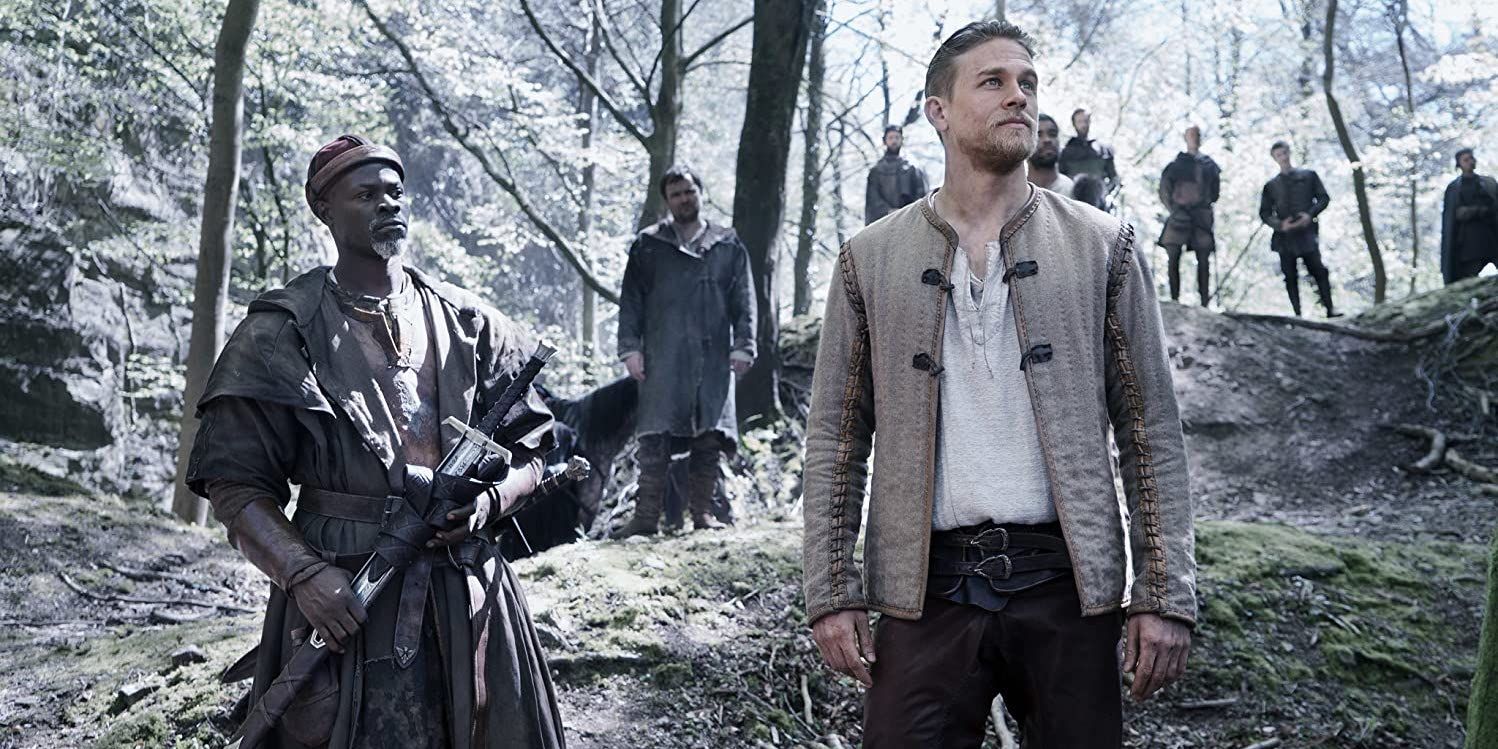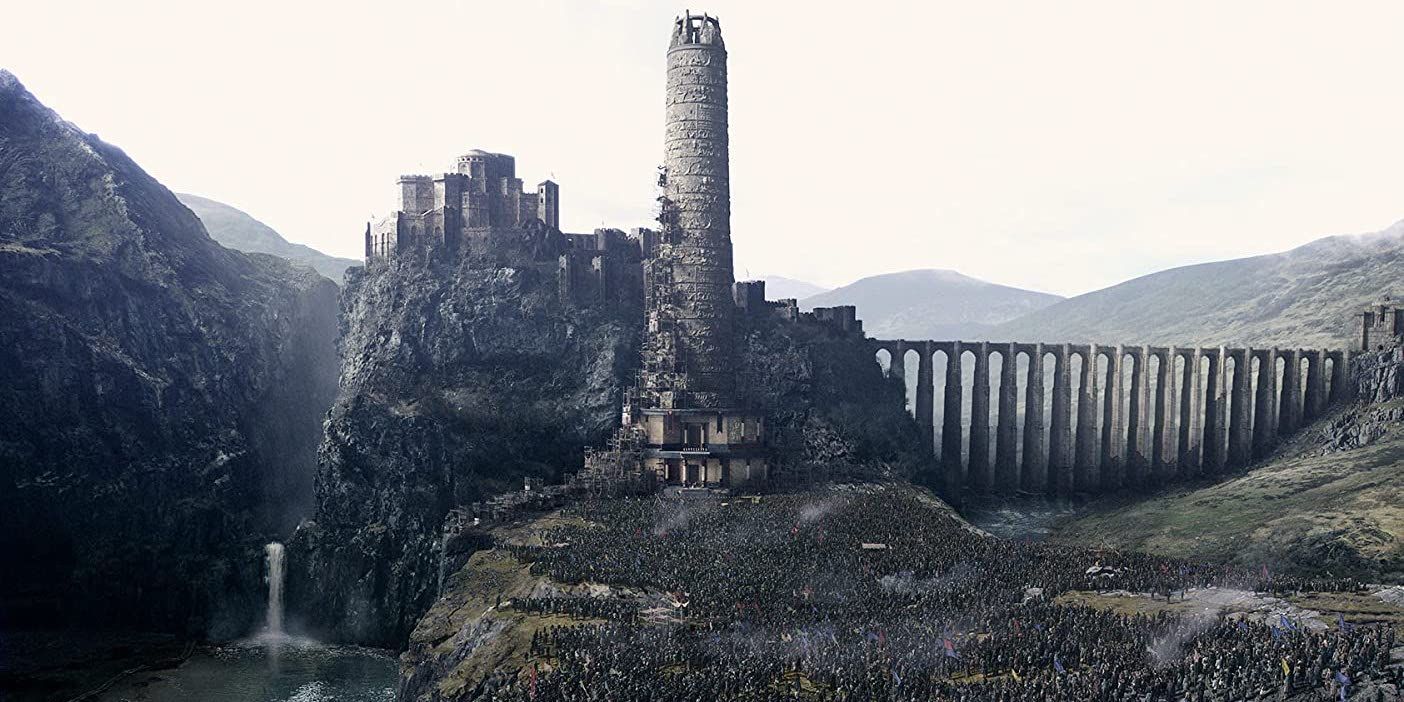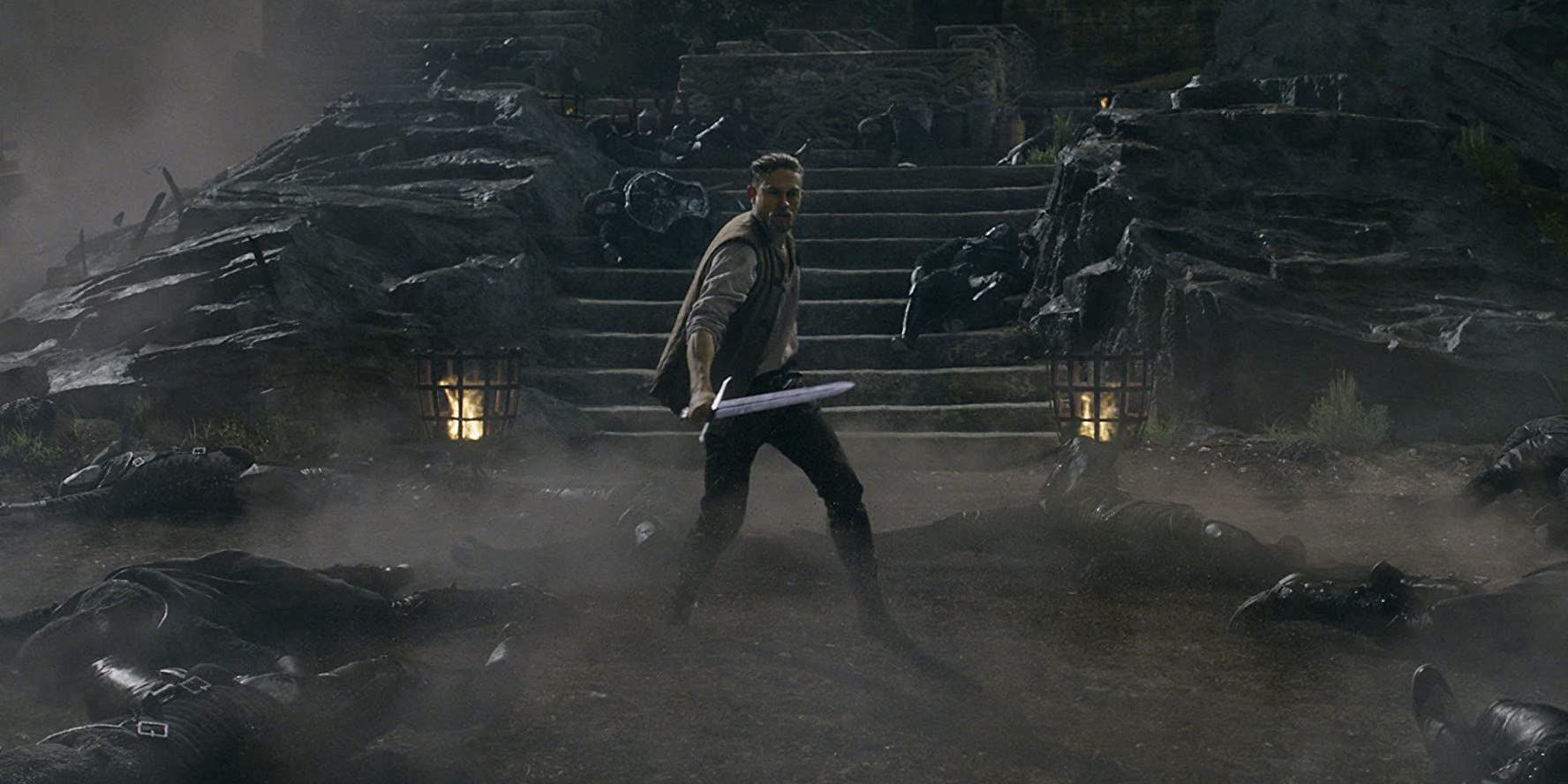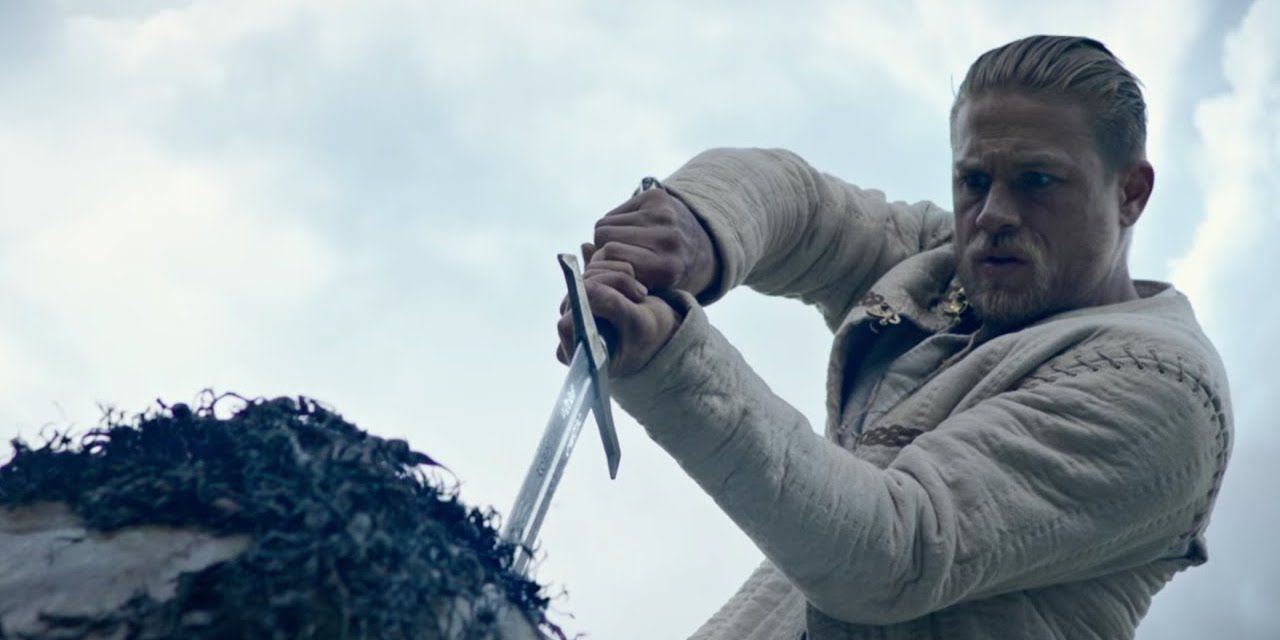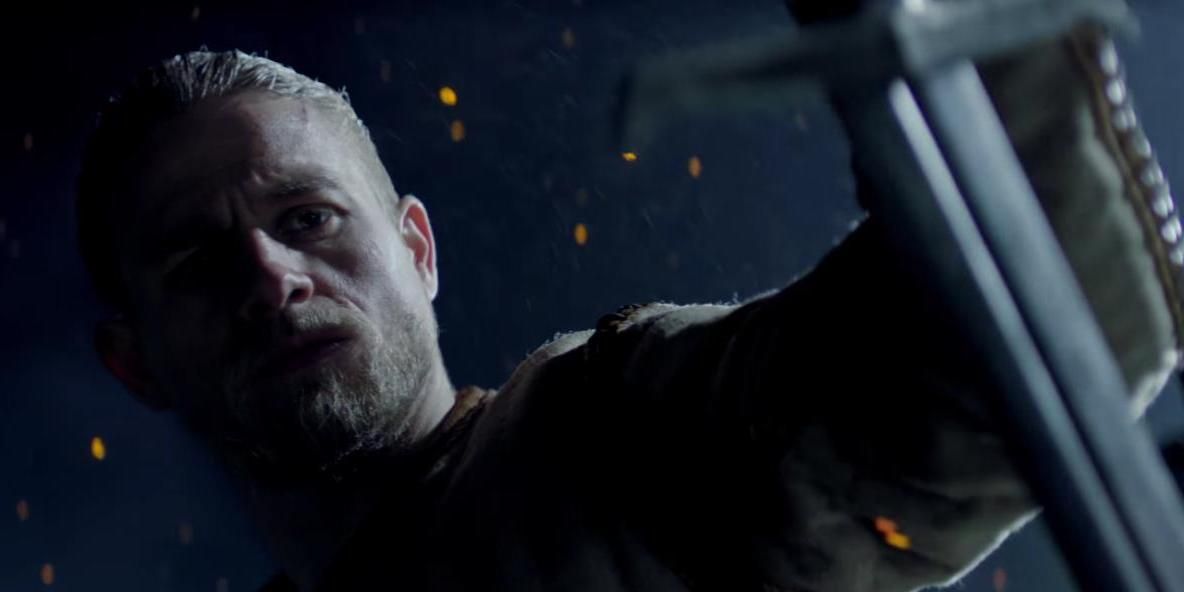2017's King Arthur: Legend of the Sword was mostly discussed at the time of its release due to its colossal box office losses for studio Warner Bros. (With estimates running as high as $150 million). It was meant to be the first in a series of movies from the studio revolving around Arthurian legend but it sadly wasn't meant to be.
Nevertheless, Guy Ritchie's undeniably odd fantasy movie quickly found a moderately devout fanbase that has only grown over the years. This begs the question: is it really as bad as its reputation suggests? Let's look at the movie's most positive qualities, as well its most negative, to find out whether it really is as bad people say it is.
Isn’t: An Interesting Score
Daniel Pemberton’s music may be, like the rest of the movie, a bit hit or miss but that’s because, like the rest of the movie, it’s throwing a lot of weird and interesting ideas out there.
The music gets in touch with its ancient era with rough, uneven, sounds coming from relatively rudimentary instruments or even just harsh inhaling and exhaling used to create a kind of throat-singing. All of which which is fairly uncommon for mega-budgeted Hollywood studio epics or just any type of movie, really.
Is: Poor Casting
The characters of King Arthur: Legend of the Sword are epic and pretty beloved within certain circles and so are its actors. They just mostly don’t fit together.
Charlie Hunnam and Djimon Hounsou, particularly, are quite clearly doing their best but struggling with how their characters are supposed to be played and it's been rumored that Ritchie himself had his own grievances with casting.
Isn’t: A Complex Villain
One of the greatest successes of the casting, however, is Ritchie mainstay Jude Law in the role of the villain. There’s a palpable Game of Thrones vibe running throughout King Arthur: Legend of the Sword and it never works as well as it does with his evil king character.
Vortigern is quite forthcoming about his simple lust for power but the lengths that he demonstrates that he's willing to go to in order to acquire and keep it make him one of the more complex blockbuster villains of recent years.
Is: Underdeveloped Heroes
There may be a round table full of knights by the end of the movie, albeit still missing some of its most central figures, but the audience knows less about them than it did with the movie's villain.
Similarly, the position of the mages within the movie's world is still uncertain by the end of the story and there's little indication as to how Arthur himself will really handle leadership responsibilities.
Isn’t: Fascinating Production Design
The characters within the world of King Arthur: Legend of the Sword may not always be particularly detailed but the world itself is.
The movie's version of ancient London, still called Londonium, bears the scars of past conflicts for the audience to see in its stonework as well the decayed remanence of the Roman regime. It goes a long way in expressing the movie's central theme of passing eras and the memories that they leave on culture.
Is: Clunky Action
Whilst thought-provoking in many instances, King Arthur: Legend of the Sword is still an action-adventure movie and the action and adventure are by far two of its weakest qualities.
The movie frequently tries to turn the mostly down-to-earth Arthur into a superpowered hero and the effect is often a rubbery computer-generated mess.
Isn’t: Multileveled Themes
The corrupting and fleeting nature of power is but one of a number of themes playing out over the course of the movie's story.
Destiny, legacy, self-worth, and balance are all explored in both an emotional and even political sense within King Arthur: Legend of the Sword and its conclusions are more quiet and pensive than triumphant or emphatic.
Is: Story Pacing
King Arthur: Legend of the Sword has a lot of narrative ground to cover and the journey is pretty bumpy for the audience.
The movie begins during the final battle of a war that is only referenced in hindsight throughout the rest of the movie and has to breeze through the campaigns of the story's actual conflict to keep things at the standard running time of an effects-driven action movie. You may get a wider view of its world as a result but you can be left struggling to understand why when the excitement and adventure of the story itself were glossed over to get to the conclusion.
Isn’t: A Unique Tone
King Arthur: Legend of the Sword is an aesthetically strange movie. It's a dark and somewhat gritty fantasy epic that deals with trauma whilst also having to maintain some vague semblance of historical reality.
It's also a whipsmart street-level crime comedy in the vein of what Guy Ritchie is most well-known for and the combination of all of its characteristics makes for something highly unusual for a movie of its size.
Isn’t: Emotional Depth
Perhaps the most interesting quality of the entire movie is the hero's journey towards emotional equilibrium. For Arthur, this means processing the death of his father, which he witnessed as a child and has buried within him ever since.
The character's repression of his emotions due to his circumstances results in him being unable to wield Excalibur, quite possibly the ultimate power symbol of all time, properly. In the end, he defeats the villain with more love than hate in his heart, and his maturing into leadership is one of the more interesting takes on archetypal protagonists in mainstream movies.


